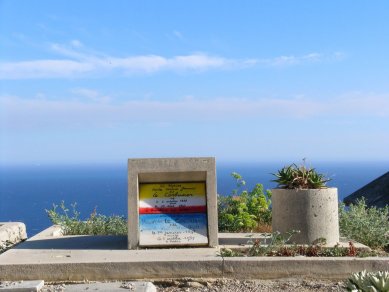
Jiří Tourek: Le Corbusier, the Mediterranean Myth and Us Today
On Wednesday, March 14, 2018, at 5:00 PM, a lecture by philosopher Jiří Tourka will take place in room B510, where he will analyze Le Corbusier's relationship with the Mediterranean.
Le Corbusier's work drew strength, conviction, and urgency from two aspects that we might call "mythical." The first was an indomitable faith in the future, progress, and a change for the better—an optimism looking forward. The second, on the contrary, looked "back" or to some timelessness of the Mediterranean, the Greek oikumene. This second aspect will be the focus of my presentation. Le Corbusier's love for mer Méditerranée is well-known. His initial travels led him to Italy, and even the famous journey to the Orient, to Istanbul, Greece, and Italy, largely took place along the shores of the Mediterranean. The same applies to his interest in Algeria and Algiers. This sea, the surrounding landscape, and climate, as well as ancient cultures, historical architecture, and centuries-old vernacular tradition, all seem to have deeply imprinted on him. Later, he added the famous Cabanon, a wooden cabin where he spent summers and where he also died in the Mediterranean waters.
From this connection, he drew much, from specific ideas or projects to certain moods or tendencies. The lecture will certainly explore the relationship with the Mediterranean through specific projects but will primarily attempt to show that the Mediterranean, its nature, and culture in the broadest sense provided Le Corbusier with a cultural background to rely on, from which one can draw—and that all of this is still relevant for us.
Mgr. Jiří Tourek, Ph.D. (*1978) studied at the Faculty of Humanities at Charles University in Prague, where he currently works. He deals with the philosophy and theory of architecture, especially modern and contemporary architecture, as well as the architecture of the classical tradition.
More information >
Le Corbusier's work drew strength, conviction, and urgency from two aspects that we might call "mythical." The first was an indomitable faith in the future, progress, and a change for the better—an optimism looking forward. The second, on the contrary, looked "back" or to some timelessness of the Mediterranean, the Greek oikumene. This second aspect will be the focus of my presentation. Le Corbusier's love for mer Méditerranée is well-known. His initial travels led him to Italy, and even the famous journey to the Orient, to Istanbul, Greece, and Italy, largely took place along the shores of the Mediterranean. The same applies to his interest in Algeria and Algiers. This sea, the surrounding landscape, and climate, as well as ancient cultures, historical architecture, and centuries-old vernacular tradition, all seem to have deeply imprinted on him. Later, he added the famous Cabanon, a wooden cabin where he spent summers and where he also died in the Mediterranean waters.
From this connection, he drew much, from specific ideas or projects to certain moods or tendencies. The lecture will certainly explore the relationship with the Mediterranean through specific projects but will primarily attempt to show that the Mediterranean, its nature, and culture in the broadest sense provided Le Corbusier with a cultural background to rely on, from which one can draw—and that all of this is still relevant for us.
Mgr. Jiří Tourek, Ph.D. (*1978) studied at the Faculty of Humanities at Charles University in Prague, where he currently works. He deals with the philosophy and theory of architecture, especially modern and contemporary architecture, as well as the architecture of the classical tradition.
More information >
The English translation is powered by AI tool. Switch to Czech to view the original text source.

0 comments
add comment
Related articles
0
20.05.2018 | Patrik Hábl : Painting as an Integral Part of Construction
0
15.05.2018 | Marie Davidová : Breathing Walls in Architectural Performance
0
09.05.2018 | Slavomíra Ferenčuhová: The Sociological Impact of Le Corbusier's Buildings
0
26.04.2018 | Patrik Líbal : Ancient Inspirations LeC
0
25.04.2018 | Petr Vorlík : Ad hoc situation, improvisation, imprints of reality and external processes in the work of Le C
0
05.04.2018 | Jan Hanák: Spiritual Aspects of Le Corbusier's Late Work
0
04.04.2018 | Marie Gelová and Klára Stachová: Le Corbusier's Landscape
0
21.03.2018 | Zdeněk Makovský: Le Corbusier - drawing, painting, architecture
0
21.02.2018 | Petr Šmídek : Le Corbusier before Le Corbusier
0
21.02.2018 | Moi and LeC - spring lecture series on Le Corbusier










